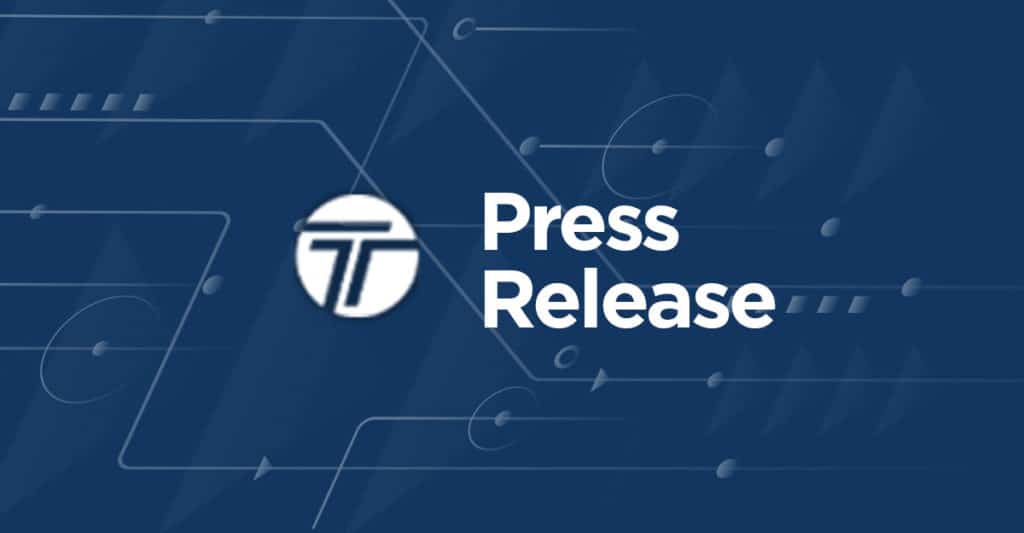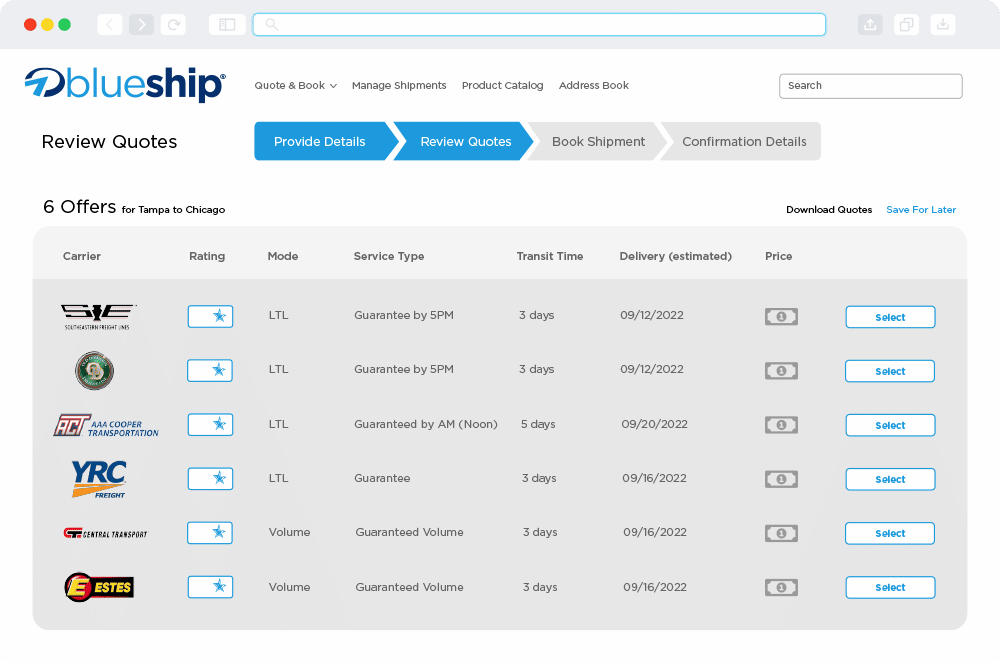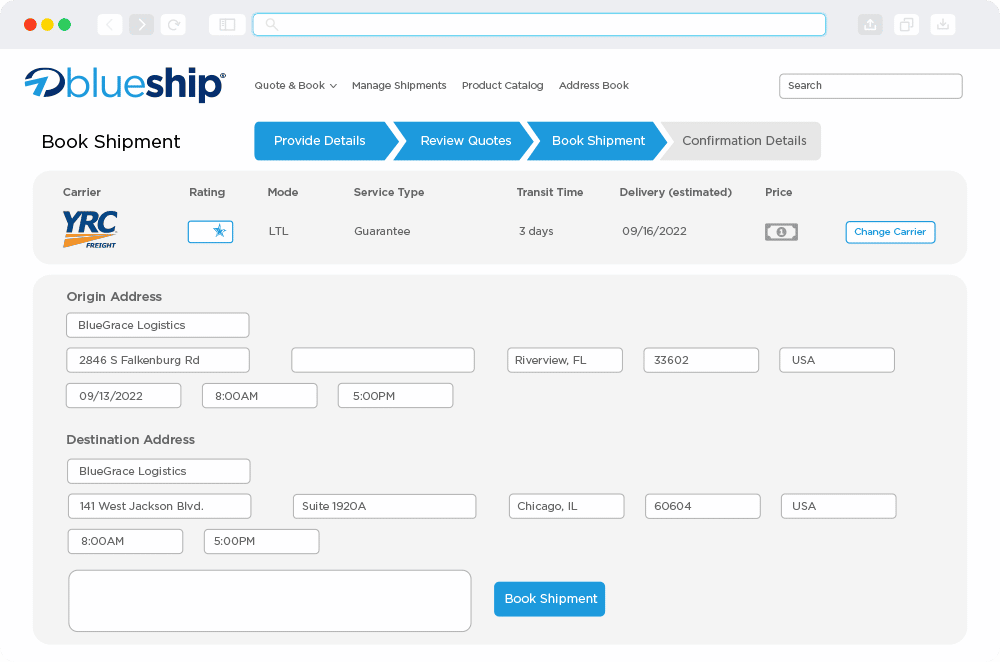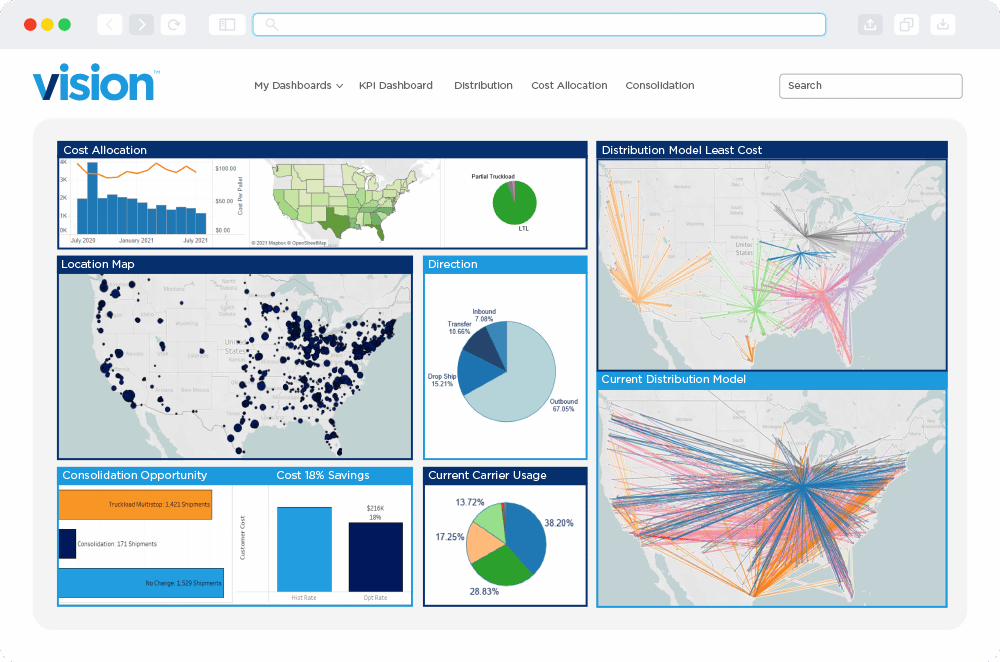
What Do LTL Carriers Do?
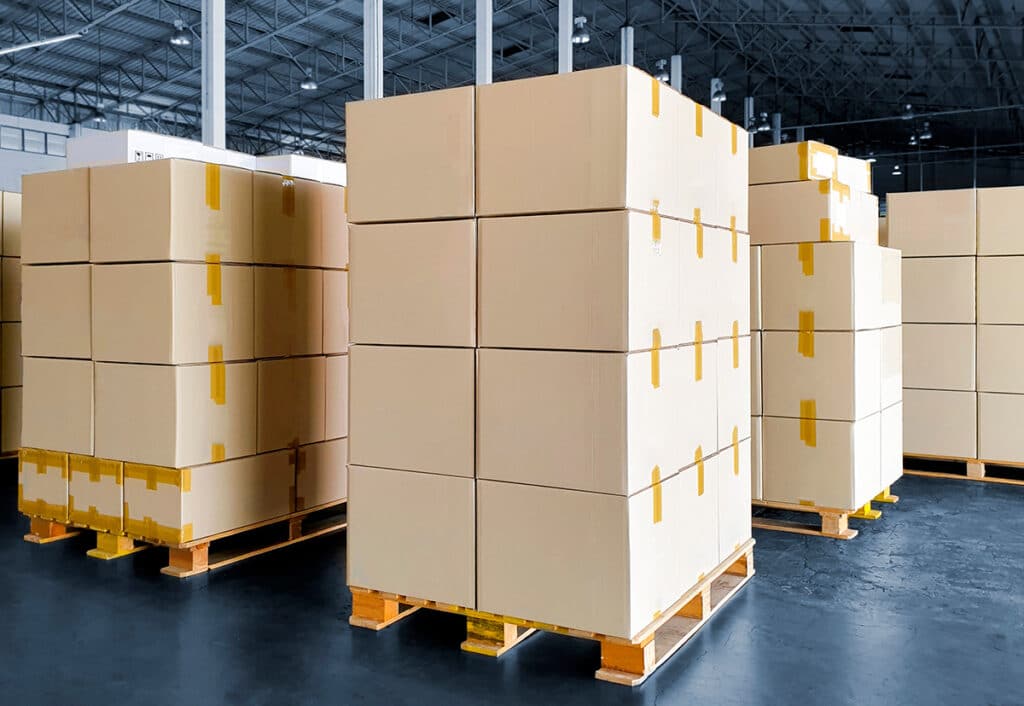
Efficiency and cost-effectiveness are highly important in the vast world of logistics and transportation. Among the various solutions available, less-than-truckload (LTL) carriers have emerged as a game-changer, revolutionizing how goods are transported.
From its flexible model and cost-effective solution, shipping with LTL carriers offers numerous benefits for small businesses. This post aims to help small businesses understand how LTL carriers function and how they revolutionize the logistics landscape.
Definition of an LTL Carrier
LTL carriers are transportation companies that specialize in handling smaller shipments than a full truckload (FTL). Load consolidation is the primary distinguishing feature LTL carriers have over FTLs. This makes them a more practical option for small and medium sized businesses that can’t fill the entire truckload in a single shipment.
See a TMS in Action: Book Your Demo!
Load consolidation is a process that involves combining multiple smaller shipments or loads to make one full truckload. By consolidating into a single load, companies can reduce the number of vehicles required and minimize overall transportation costs.
By sharing the transportation costs among multiple shippers, each shipper pays only for the space their shipment occupies. This cost-sharing model makes LTL shipments more economical and flexible compared to FTL carriers.
Core Services Provided by LTL Carriers
LTL carriers offer a range of services tailored to the specific needs of businesses with smaller shipments. Here are some of the primary services provided:
- Pickup: They typically offer pickup services, collecting shipments from the shipper’s location. This service eliminates the need for businesses to arrange transportation to the carrier’s terminal or distribution center.
- Consolidation: A key task where an LTL carrier combines multiple smaller shipments from different businesses into one truck, optimizing capacity and resources. This process reduces costs for both the carrier and the shipper.
- Shipment Tracking: Tracking allows shippers to monitor their goods in real-time, providing visibility into the supply chain. With this service, shippers can manage their inventory, communicate delivery information and make informed decisions based on up-to-date data.
- Transportation: LTL carriers operate comprehensive transportation networks, utilizing their trailers to transport shipments to various locations within their service areas.
- Delivery: They ensure shipments are unloaded safely, sorted based on their destinations, and delivered to the recipients promptly.
Aside from the convenient and flexible shipping model, LTL carriers also ensure the protection of your goods. Proper packaging and handling safeguard the contents of the shipment during transportation. Less-than-truckload shipments often share space with other loads in a truck, increasing the likelihood of potential shifting, vibration, or impact.
As mentioned earlier, LTL carriers employ the load consolidation strategy to move small shipments from various shippers. The effectiveness of this service lies in its ability to streamline multiple shipments from different customers into larger, more efficient loads, maximizing space utilization.
Freight Classification and Rating
Freight classification is a system used to categorize shipments based on weight, dimensions, density, and commodity type. This classification system helps determine the appropriate pricing and rating structure for different types of freight.
LTL carriers assign freight classes by considering several factors like:
- Weight: Heavier loads may have a lower freight class, while lighter shipments may have a higher class.
- Dimensions: Oversized or irregularly shaped shipments may have a higher freight class.
- Density: Higher-density shipments may have a lower class, while lower-density shipments may have a higher class.
- Commodity type: The NMFC provides specific guidelines and categories for different kinds of goods, considering their fragility, handling requirements, and potential hazards.
Freight classes are important in determining fair pricing and rating structures. Less-than-truckload carriers use the assigned freight class and other factors like distance and special handling to calculate the shipping charges for a particular shipment.
Transit Times and Delivery Options
The transit times for shipments can vary depending on several factors, including the distance between the origin and destination, the carrier’s network, and any additional service requirements. Generally, less-than-truckload shipments have longer transit times than full truckload shipments since they involve multiple pickups, consolidations, and deliveries along the route.
Carriers understand that customers have varying delivery needs and offer different options to accommodate those requirements, such as standard, expedited, or time-definite deliveries. Make sure to communicate with your LTL carrier regarding your shipment schedule, so they can help you find the best solution for your needs.
Less-than-truckload carriers also recognize the importance of providing customers with efficient and accurate tracking and tracing capabilities. They offer systems and tools that allow shippers and recipients to track the progress of their shipment status in real-time. This may include pickup confirmation, transit updates, estimated delivery times, and proof of delivery.
Value-Added Services Offered by LTL Carriers
In addition to their core services, LTL carriers often provide various value-added services to cater to specific delivery requirements and address unique challenges. Here are some examples of these additional services:
- Liftgate Services: They may offer liftgate services for locations lacking a loading dock or for shipments that are too heavy or bulky to be manually loaded or unloaded.
- Inside Delivery: An LTL carrier can provide inside delivery services where the driver assists in bringing the shipment beyond the designated drop-off point.
- Appointment Scheduling: This service is valuable for businesses that have restricted receiving hours, require specialized equipment or personnel for unloading, or must ensure someone is available to receive the shipment.
Value-added services like liftgate, inside delivery, and appointment scheduling make the delivery process more convenient and efficient for businesses. They eliminate the need for additional equipment, personnel, or logistical arrangements, saving time and effort.
Leveraging a 3PL
Third-party logistics (3PL) providers act as intermediaries between shippers and carriers, offering a wide range of services to streamline and optimize logistics operations.
3PLs can handle various aspects of the supply chain, including warehousing, transportation, inventory management, and freight forwarding. Partnering with a 3PL provider, like BlueGrace, can be advantageous for businesses that are looking to manage their LTL carriers and rates effectively.
Also, 3PLs have deep knowledge and understanding of the logistics industry. They stay up to date with market trends, carrier capabilities, and regulatory changes. Their expertise and technology solutions enable them to offer valuable insights and guidance to businesses, helping them make more informed decisions.
Advantages of Using an LTL Carrier and a 3PL
Utilizing LTL carriers and partnering with a 3PL provider can benefit businesses in many ways. Here are some of the key advantages:
- Cost Savings: 3PLs have the expertise and industry knowledge to optimize shipping routes, consolidate shipments, and minimize accessorial charges. They can identify opportunities to improve transportation efficiency and reduce overall logistics costs. Additionally, 3PLs have strong relationships with carriers, allowing them to negotiate better rates and pass on the cost savings to their clients.
- Streamlined Operations: Businesses can rely on a single point of contact instead of dealing with multiple carriers individually to handle LTL shipments. A 3PL would handle tasks like shipment scheduling, tracking, documentation, freight auditing and relieving any admin burdens, allowing the customer to focus on growing the business.
- Expertise and Network: 3PL providers have established relationships with a network of LTL carriers, enabling businesses to choose from various options based on their needs. They also understand all the complexities of LTL shipping, like freight classification, rating and carrier selection, and can leverage their knowledge to optimize transportation strategies.
3PLs streamline and centralize LTL transportation processes by providing comprehensive logistics management services. They handle all aspects from pickup to delivery, including documentation, scheduling, tracking, and reporting.
Final Thoughts
LTL carriers help businesses fulfill delivery obligations in a cost-effective and efficient way via load consolidation. With the help of a reliable 3PL provider, business owners can access more competitive rates, leverage a wide network of carriers, and benefit from simplified logistics management.
If you’re looking for a way to streamline and optimize your LTL shipments, working with BlueGrace is your best bet. With our comprehensive logistics management services, you can access competitive rates, simplify the process of finding and managing carriers, and have peace of mind that your freight is in good hands.
Want access to all major LTL carriers in one system? Book a demo with our TMS platform, BlueShip, and get access today!
Related Posts
Managing the Realities of the “New Normal” LTL Shipping Environment
Managing the Realities of the “New Normal” LTL Shipping Environment
Read The Logistics Blog®
The Power Of Using A TMS For Any Size LTL Shipper
The Power Of Using A TMS For Any Size LTL Shipper
View The Logistics Blog®
LTL Shipping: 10 Common Mistakes and How to Avoid Them
LTL Shipping: 10 Common Mistakes and How to Avoid Them
View The Logistics Blog®

